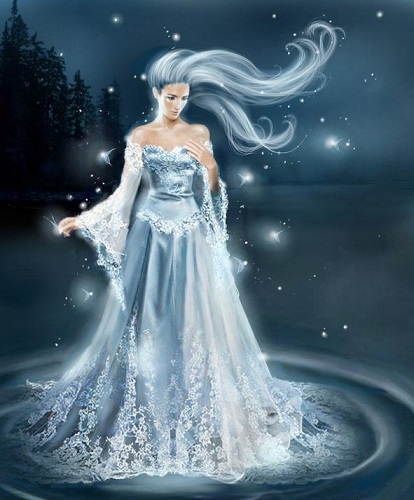Astraea
Titan / goddess of the Stars, of Innocence and Purity
Astraea is a minor but important goddess from Greek mythology. Known as the "Star Maiden" or "Star Goddess", she is best known for being the last immortal to live among the humans on Earth before leaving in disgust of humanity's brutality and wickedness.
There are arguments about who her parents are. She is the daughter of either Zeus and Themis or of Eos and Astraeus. She is often depicted as a winged woman, carrying a torch and the scales of justice.
She is also said to have helped Zeus in battle, and is sometimes portrayed carrying his lightning bolts with her.
Astraea is most often associated with two of the major constellation myths, those of Virgo and Libra. While there is much debate about her role in Virgo mythology, I believe that she is the most likely candidate for the role of Virgo. Whether she is or isn't the figure of the Virgo myth, she is definitely very closely connected to both Virgo and Libra mythology.
Some believe that Astraea's image is the portrayed on the "Justice" card in the major arcana of the tarot. There is reason to believe that this is true. In the most famous rendition of the card's artwork, a winged woman carrying a torch and thunderbolts stands beside the throne of Zeus. The name "Astrape" is inscribed above her.
Though often called "the virgin goddess", Astraea is best known as a goddess of Justice, along with Dike (Greek mythology) and Erigone (Roman mythology), with whom she is often interchangeably mentioned. When she left Earth for the heavens, she essentially took the "Golden Age of Man" with her.
Later literature inferred that once humanity realized what it had done, they hoped for her to return, inferring that she would bring the Golden Age back with her. This is notably similar to the "return of the messiah" in Christian mythology.
Though not one of the most well-known the Greek gods and goddesses, the Star Maiden's influence has lasted throughout the years. Greek epics and English literature refer to her in poems over several centuries, including one by Ralph Waldo Emerson.
[1]













